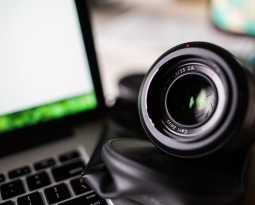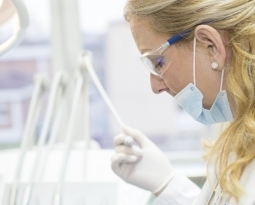Michigan Patent of the Month – December 2021
Diabetes is a chronic disease resulting from deficient insulin secretion by the endocrine pancreas. Those who suffer from Type-1 diabetes rely on daily insulin injections to control blood-glucose-levels. Those with Type-2 diabetes, on the other hand, experience the gradual failing of the endocrine pancreas, as the ability to satisfy increased insulin demands diminishes. These patients compensate with a regime of oral medications and/or insulin therapy. In either case, failure to control glucose levels can lead to complications ranging from heart attacks to blindness.
There is constant development as the industry strives to create solutions which help patients with diabetes more easily manage and treat the disease. This ranges from improved insulin dose regimens to more easily used devices to administer insulin or monitor status.
Hygieia, Inc. was founded out of the University of Michigan with the belief that there is a better way to use insulin. They have been developing solutions and contributing to diabetic research since 2008. Recently, they have patented a device to better aid in diabetes management.
This device tracks and stores data surrounding a patient’s current insulin dosage regimen and blood-glucose levels. The device can use this data to determine how much to vary the dose regimen based on the patient’s status. For instance, if a smaller dose is needed because their insulin levels are more closely in range than the prescribed dose assumes. The processor communicates with a needle, informing the smart needle of the quantity of insulin needed to be delivered. When the patient administers the needle, the device uses a metered process to control the dose received. In this process, the patient’s dose regimen can be modified to suit what they need at the moment, rather than an anticipated regimen. Through improved care, the disease is more manageable and less likely to lead to complications.
Are you developing new technology for an existing application? Did you know your development work could be eligible for the R&D Tax Credit and you can receive up to 14% back on your expenses? Even if your development isn’t successful your work may still qualify for R&D credits (i.e. you don’t need to have a patent to qualify). To find out more, please contact a Swanson Reed R&D Specialist today or check out our free online eligibility test.
Who We Are:
Swanson Reed is one of the U.S.’ largest Specialist R&D tax advisory firms. We manage all facets of the R&D tax credit program, from claim preparation and audit compliance to claim disputes.
Swanson Reed regularly hosts free webinars and provides free IRS CE and CPE credits for CPAs. For more information please visit us at www.swansonreed.com/webinars or contact your usual Swanson Reed representative.

















